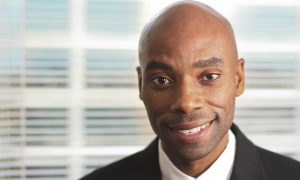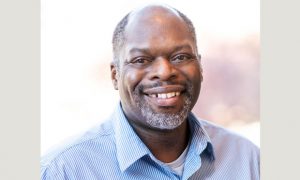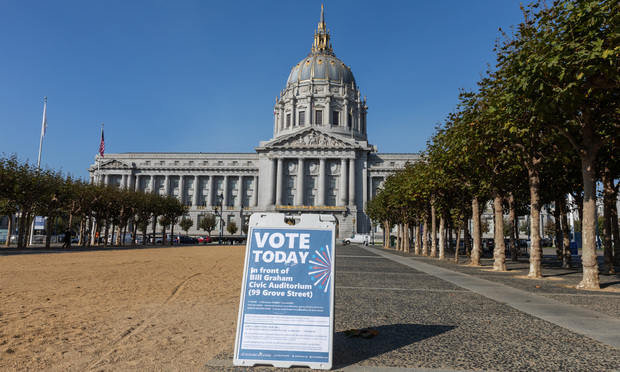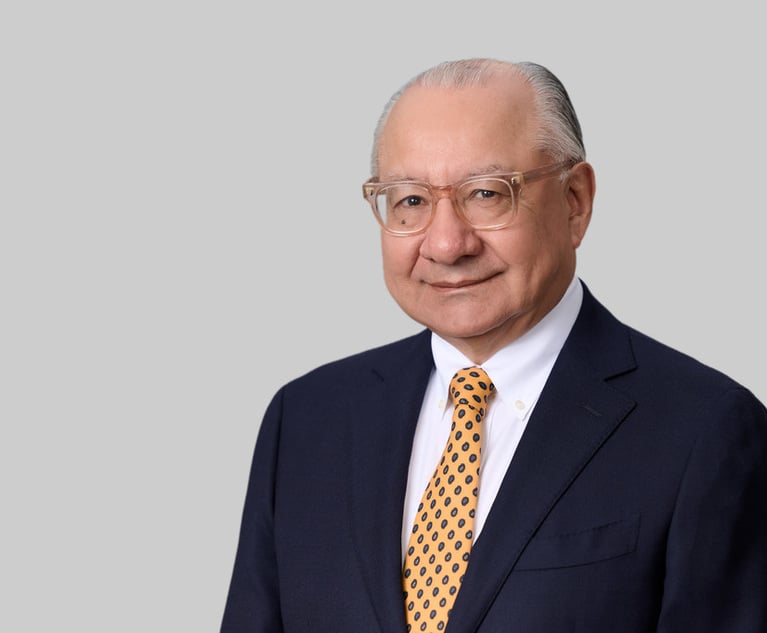Judicial elections are supposed to hold judges democratically accountable to the people they serve.
But a survey of election ballots shows hundreds of judges draw no challengers for their seats, and many judges go their whole careers without facing political opposition.
And voters are paying little attention.
In the most recent election cycles across Florida, Texas, Georgia, Pennsylvania and New York, more than 500 judges were automatically voted or reelected to the bench, because no one opposed them. The vast majority were incumbents.
Why, when the system is set up for the public to elect judges, is that rarely what happens? The answer is multifaceted, according to experts.
Related story: No One Dared To Run Against 70% of Texas District Judges —And That’s the Way It’s Always Been
How many judges were elected without opposition by state?
Florida: Of 235 circuit judgeships in nonpartisan elections across Florida, 199 candidates were elected without opposition. Of those, 190 were incumbents. 64 of 88 available county court seats went to judges without opposition, 61 of whom were incumbents.
Georgia: 131 out of 147 incumbent judges won their election contests without any opponents. These include court of appeals and superior court races.
Texas: Of 341 total candidates running in judicial elections, 145 were uncontested in both their primary election and the general election. Among the uncontested candidates, 136 were incumbent judges. And of the 145 unopposed judges, 68% of these were Republicans and 32% were Democrats.
Pennsylvania: In Pennsylvania’s 2019 judicial elections, out of 121 vacancies on the Court of Common Pleas, 96 were elected without opposition. Of those, 81 were incumbents who ran unopposed in retention elections and another 15 were newcomers who ran unopposed.
The only election for new candidates on a statewide court in Pennsylvania in 2019, for two seats on the Superior Court, an intermediate appellate court, was contested, with four candidates running.
New York: Two incumbents and two newcomers, all Democrats, are running unopposed for Supreme Court justice in New York’s District 1 in Manhattan. They’re guaranteed a victory and will serve 14 years.
Source: state division of elections and county supervisors of elections.
Please note: this survey did not take into account past election years, so does not reflect how, if at all, the COVID-19 pandemic has affected 2020′s numbers.
The survey revealed that incumbents are less likely to face opposition in rural counties. And in states with partisan elections, that’s where Republican candidates seem to have an edge.
It’s not necessarily a problem to have a high rate of incumbent judges running unopposed, the way University of California law professor and election law expert Richard Hasen sees it.
That’s because, he reasons, “We don’t expect judges to be accountable to the people in the same way that legislators are, and most judicial elections justifiably gather little attention because most judges are doing a good job.”
It’s when judges aren’t doing a good job that elections matter most, in Hasen’s eyes.
“That is, the people are a check on a judge who has ethical problems or who makes a very bad set of decisions,” Hasen said.
University of Miami law professor Charlton Copeland teaches civil procedure, Constitutional law and federal court administrative law. He noted judicial elections stem from a populist sense that a judge’s authority, though more formal and backward-looking than a legislator’s, nonetheless makes them crucial decisionmakers.
So, Copeland said he was surprised there weren’t more challengers to incumbents in Democratic-leaning South Florida. Because, although the state’s judicial elections are nonpartisan, non-Republican candidates are less likely to catch the eye of Gov. Ron DeSantis and be appointed.
“The government plays such a big role and this is a state that is so closely divided from a partisan perspective, yet we’ve had nothing but Republican governors,” Copeland said. “From a structural perspective, I think the judiciary is just not representative of the ideological diversity of the state.”
In Miami-Dade County, for example, 31 of 36 circuit bench candidates were unopposed, while in Broward County, 16 of 21 were unopposed. All but one were incumbents.
Implications for justice system
Indiana University law professor Charles Geyh focuses on judicial conduct, procedure, independence and accountability, and authored, “Who is to Judge” about judicial selection processes. He’s found the benefit of appointment is that judges aren’t beholden to an under-informed electorate.
“I’m yet to run into an informed scholar from any other country who looks at what we do here and thinks it makes the most sense,” Geyh said. “I think folks from elsewhere look at us and sort of shake their heads quietly and say, ‘What the hell?’ But we’ve had them since the 1840s, so it represents the norm.”
 Indiana University law professors Charles Geyh. Courtesy photo.
Indiana University law professors Charles Geyh. Courtesy photo.
Geyh stressed that Argentina is the only other country in the world that elects its judges. And he pointed to a 2004 Pennsylvania study that showed judges were more likely to sentence defendants to longer jail sentences in the months before elections than after, seemingly worried about looking tough on crime.
Some argue that’s a good thing, as it means judges are being kept in check. But others worry: What if they’re being kept in check by people who don’t know much about the judiciary?
Take former Chief Alabama Supreme Court Justice Roy Moore, for instance, who was removed from office by his own peers for installing a Ten Commandments monument in the court’s lobby. Despite that, he was elected chief justice again several years later.
“At a minimum, merit selection systems weed out the bad apples, I think, better than election systems,” Geyh said.
Still, many voters argue they should decide who’ll preside over their cases. But elections also involve money, campaigning and media — things judges are usually supposed to avoid.
That, to Arizona attorney Mark Harrison of Osborn Maledon, runs counter to the perception of impartiality, because judges “have to raise money, typically from people who are going to appear in front of them, either organizations or lawyers.”
Harrison chaired the last revision of the ABA Model Code of Judicial Conduct and has worked with Justice at Stake, which promoted merit selection, reasoning that, “If the judge has done something really stupid, then they simply vote not to retain that judge.”
The problem with campaigning, in Geyh’s experience, is that groups often throw money behind candidates likely to look at problems the same way they do, creating the perception of a quid pro quo even when there isn’t one.
“There is some evidence that, in reality, money does influence judicial decision-making,” Geyh said. “Maybe not consciously. But you know that there but for the grace of your supporters go you, and it’s very hard to sort of not have that affect you even subconsciously.”
What about diversity?
The jury is still out on which system would result in a more diverse bench.
But a 2008 study in the Justice System Journal analyzed federal and appellate judicial selection methods across 20 years to find no one system of judicial selection favored minorities or women.
And, depending on the circumstances and areas, Copeland theorized that elections could even reduce diversity.
“A minority candidate is probably less likely to be from a wealthy background than a nonminority candidate,” Copeland said. “If there was a culture of running against incumbents, would we lose minority attorneys who have been appointed?”
A 2019 report from the Brennan Center for Justice found, “judicial elections have rarely been a path for people of color to reach the supreme court bench.”
However, Geyh said he’s heard from multiple elected female judges who didn’t think they’d stand a chance with a merit selection system.
Click here to see diversity numbers for each state
But the status quo isn’t working either. The Brennan Center also found courts across the country failed to reflect the racial, ethnic and gender diversity of their communities.
Miami litigator and past president of the Wilkie D. Ferguson Jr. Bar Association Trelvis Randolph noted his local circuit bench is no exception.
 Trelvis Randolph, partner at Quintaros, Prieto, Wood & Boyer. Courtesy photo.
Trelvis Randolph, partner at Quintaros, Prieto, Wood & Boyer. Courtesy photo.
“Anyone who looks on the directory online can see the lack of representation there, so I don’t think we can blame this on a lack of knowledge or ignorance,” Randolph said. “I think it’s more just a lack of caring.”
Randolph therefore reasons it’s up to bar members and organizations to bring these issues to litigants, through open forums with candidates.
“A seat doesn’t belong to a judge,” Randolph said. “A seat belongs to the people and the judge is occupying that seat as the people see fit to elect him or her.”
Election systems could be problematic, however, if a majority-white electorate tended to vote for majority-white candidates.
The state governor is typically in the best position to diversify the bench because of their widespread power to appoint judges, the way Harrison sees it.
“The election system depends upon whether diverse candidates run,” Harrison said. “And an appointing authority typically wants to be able to say, ‘I’ve appointed women, I’ve appointed minorities and people of color.’ ”
But crucially, he noted that would require all governors to make diversity a conscious and continuous priority, and many don’t.
‘Barbarians at the gate’
A low number of contested elections likely means most attorneys are looking at judicial elections and thinking, “No, thank you.”
And there are plenty of reasons why. Chief among them: losing. Voters tend to vote name recognition, and incumbents have the advantage of preparing early. So, many attorneys might be happy to accept a nomination but stressed at the thought of running a campaign.
 University of Idaho law professor Aman McLeod. Courtesy photo.
University of Idaho law professor Aman McLeod. Courtesy photo.
When University of Idaho students tell law professor Aman McLeod of their aspirations to become a judge, he tells them, “Then you need to get involved in politics, because being a smart lawyer is never going to be enough.”
That’s because running a judicial campaign requires political supporters, while getting appointed means coming to the attention of those who can appoint you.
There’s likely a culture of not wanting to challenge incumbents, according to Copeland, who recalled one conversation with an elected judge.
“I think he felt like there was a sense of ‘the barbarians at the gate’ kind of quality to it,” Copeland said. “I think there is some prestige to the idea of being nominated by the governor and moved through the judicial nominating committee.”
If a challenger loses against an incumbent, Geyh said they might pay a subtle price — or, at least, experience “a fair amount of awkwardness there, where they’re going to be appearing before judges who they have essentially challenged in terms that may not be flattering.”
Harrison seconded that.
“Judges are loyal to one another, and if lawyer a runs against Judge X, who’s been on the bench a long time, the other judges may look askance at that lawyer because he had the temerity to run against one of their colleagues,” Harrison said.
In Randolph’s view, the decision to challenge an incumbent should be deliberate and careful, based on their performance.
“I don’t think someone should be challenged just for the sake of being challenged. I feel it’s a waste of resource,” Randolph said. “You should be able to articulate a reason why someone should be removed from the seat.”
To anyone looking to run for judge, Randolph suggests starting early — because most incumbents start building their campaign “war chest” straight away — and finding a mentor, or someone who’s gone through the judicial election process.
“You can be a great judge, but a bad fundraiser,” Randolph said. “You can be very qualified to sit on the bench, but if you’re not a ‘politician’ or you’re not in the business of raising money for a campaign, then that can be really daunting to say, ‘OK, where do I start? How do I ask people for money?’ ”
Many judges also choose to resign before their term expires, and thereby avoid triggering elections. That creates what McLeod described as “ elections in theory, but appointment in fact.”
“I’ve seen it happen tons of times,” McLeod said. “Judges retire before the end of their terms and then they let the governor make an appointment, so that whoever it is that gets the seat goes into the election as an incumbent and then nobody bothers to challenge them.”
‘Election overload’
And while having a better-informed electorate would help, McLeod said it’s unrealistic to expect voter to keep up with local races, thanks to America’s “election overload.”
The more opportunities voters have to fill posts, from the state legislature, to prosecutors, to school board members and the county comptroller, the harder they must work to keep up.
“We elect the dog catcher in this country. How does anybody have time to get informed about all of these races?” McLeod said. “I think a lot of people in Europe looking at the U.S. system would say, ‘What a ridiculous system. You have all these people who are not trained in the law and not dispassionate observers who are involved in it.’ ”
Unless a local judicial race is highly contested, and maybe even ugly, Geyh reasoned it’s unlikely most people will pay attention.
“From my perspective, it’s hopeless, in the sense that there’s nothing you can do to generate sufficient interest in trial judges to get a meaningful and well-informed electorate,” Geyh said.
And yet, voters have generally been resistant to tossing the system — including in Pennsylvania, which has tried to transition to merit selection for years.
So, for better or worse, it’s probably here to stay, the way Geyh sees it: ”I have to assume that part of that is because the general public is at peace with having the power of choice, even though they recognize that the influence of money on elections is problematic.”
Charles Toutant, Robert Storace, Angela Morris and Michael A. Mora contributed to this report.
Read more:
No One Dared To Run Against 70% of Texas District Judges —And That’s the Way It’s Always Been
NOT FOR REPRINT
© 2024 ALM Global, LLC, All Rights Reserved. Request academic re-use from www.copyright.com. All other uses, submit a request to [email protected]. For more information visit Asset & Logo Licensing.


 Outdoor polling place and early ballot drop off. (Photo: Jason Doiy/ALM)
Outdoor polling place and early ballot drop off. (Photo: Jason Doiy/ALM)





